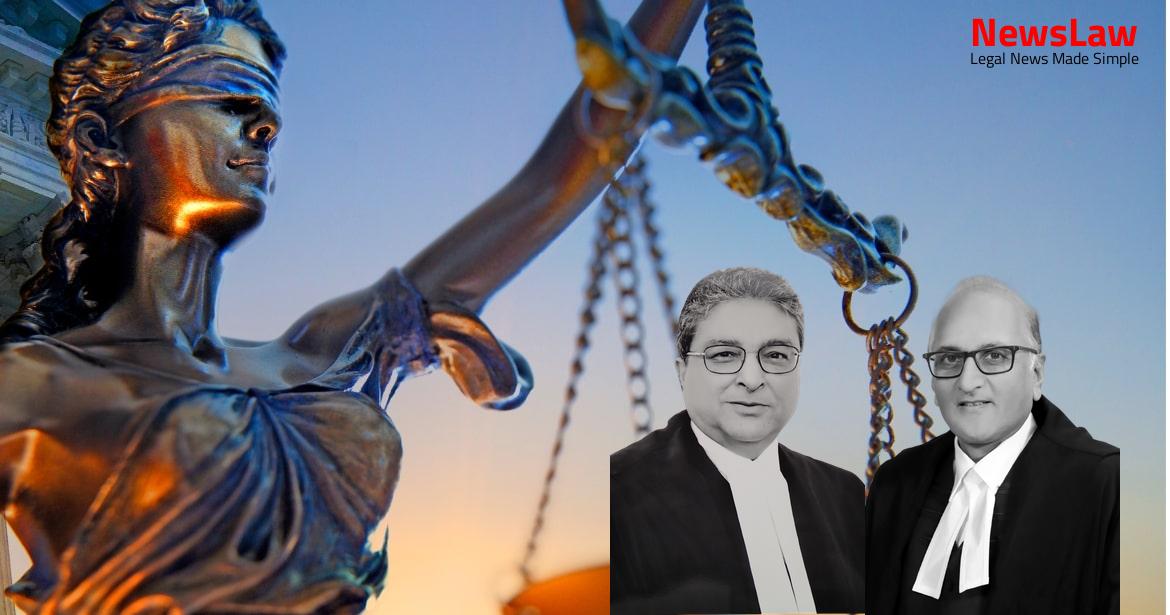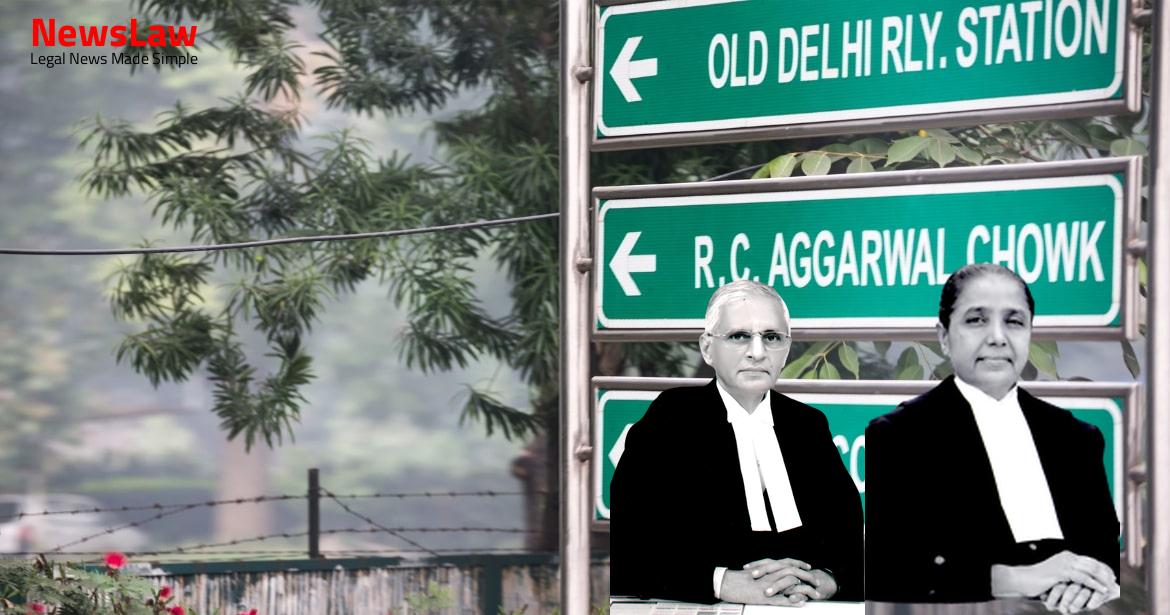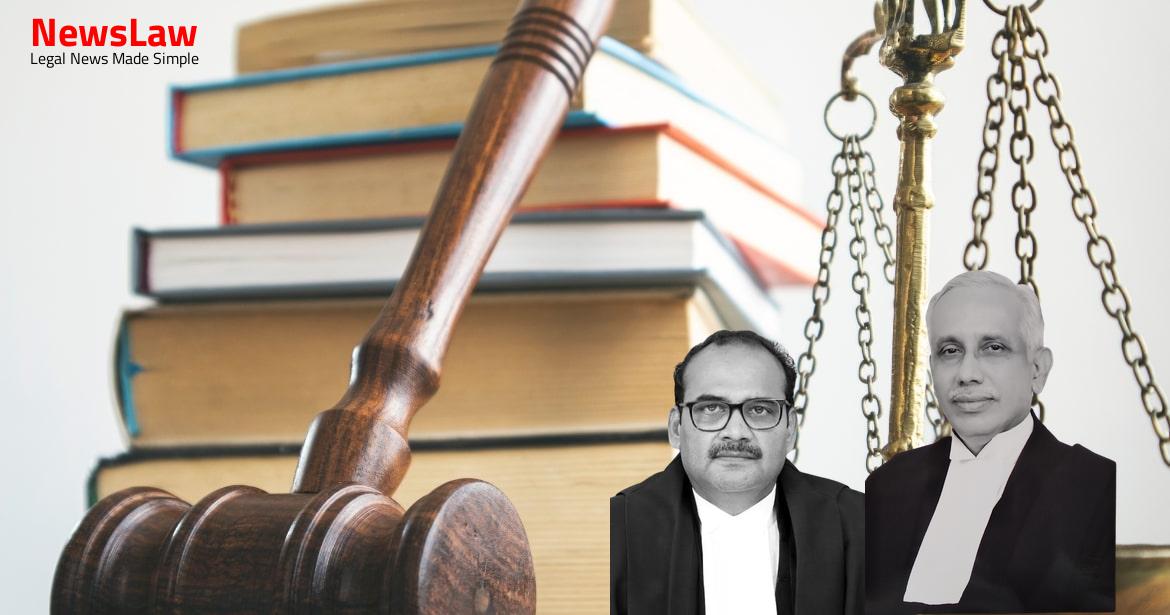Delve into the recent legal case where the court emphasized the significance of property rights in safeguarding liberties. The court acted as a protector of people’s fundamental rights against unlawful executive actions, highlighting the importance of the rule of law in upholding property rights. The evolving jurisprudence underscores the essential nature of property rights in ensuring freedoms and economic liberty. Follow the legal analysis in this case that reinforces the importance of property rights in a democratic society.
Facts
- The Requisitioning Act was enacted in 1952 to enable the Union to requisition or acquire immovable property for public purposes.
- Several amendments and legal proceedings took place over the years concerning compensation fixation and property requisition.
- The Act underwent several amendments, extending its period of operation and updating the provisions for compensation determination.
- Compensation was fixed based on square foot rates for different periods, and arbitration awards were challenged and remitted for fresh consideration.
- The Defence of India Act of 1962 was invoked initially for property requisition, which was later deemed to be under the Requisitioning Act.
- Various lands were acquired and disputes arose regarding compensation adequacy, leading to multiple arbitration proceedings and legal battles.
- The Union sought special leave to appeal against certain judgments and orders related to property acquisition and compensation fixation.
- The High Court rejected claims for immediate possession handover, leaving room for acquisition proceedings by the Union.
- The summary also includes details of specific survey numbers, compensation rates, and the chronology of legal events related to the case.
- The Court held that the agreed compensation up to 10.01.1968 was final.
- The High Court found no evidence to support the Union’s claim of land acquisition.
- An appeal challenging an award covering the requisition period was allowed, but the one under DIA was not.
- The arbitrator issued two awards, one on ownership and the other on compensation determination.
- A Division Bench of the Karnataka High Court confirmed the arbitrator’s compensation awards in 2000.
- The court rejected the Union’s claims on the acquisition of certain portions of the suit land.
- Evidence showed that Sy. Nos. 103/1 and 103/2 were not acquired, while Sy. No. 104 was validly acquired.
- The Division Bench reiterated the recurring compensation calculation from 10.01.1968 and after the Amendment Act.
Also Read: Electoral Malpractices in Mayor Election
Arguments
- The Union was required to vacate the suit property once the issue of ownership was conclusively settled.
- The right to property is considered not only a constitutional or statutory right but a human right.
- Deprivation of possession of one’s property without a law was ruled as untenable.
- The impugned judgment was argued to have erred in law by refusing to grant the reliefs claimed in the writ proceedings despite ownership and title being upheld.
- The findings of the arbitrator in the third arbitration proceedings became final after the Union’s appeal was rejected by the Division Bench and the special leave petition against that judgment was rejected by the court.
- The arbitrator’s decisions on the extent of acquired land in the first and third awards were deemed conclusive and binding due to the absence of a valid award made by virtue of the operation of law.
- A period of 2 years was granted by Parliament after the 1984 amendments to the Land Acquisition Act for completing the acquisition and issuing the award.
- The High Court correctly denied the claim to release of lands as it was a dispute to be decided by the civil court.
- The original landowner, late Krishnamurthy, sought and was granted a reference to arbitration for compensation payable.
- Successive amendments to the Requisitioning Act extended the period of requisition until it ended in 1987.
- The lands were requisitioned in 1963 under the DIA.
- The first award in 1975 determined the extent of land requisitioned and owned by the landowner.
- The value of the property and compensation had risen significantly due to commercial potential.
- Mr. K.M. Natraj, the learned Additional Solicitor General, argued against interference with the judgment.
Also Read: Balancing Power and Transparency: Electoral Bonds Struck Down, Disclosure Mandated
Analysis
- The Constitution Bench held that a requisition order for a permanent public purpose cannot be continued indefinitely under the Bombay Land Requisition Act, 1948.
- Mesne profits for the requisitioned property should be determined by a Court Commissioner as relief sought in the plaint.
- The High Court found the Union’s claims meritless but refused to release the suit lands.
- Non-exercise of powers under Section 30 during the Act’s currency indicates the Government didn’t require the requisitioned land or find restoration costs excessive.
- The requisition order, if valid in 1976, has lost efficacy and should be considered unreasonable and an abuse of power now.
- The Court directed the Union to restore possession of requisitioned properties to the appellants within eight weeks.
- Property owners lose possessory rights temporarily during requisition, but title remains.
- Requisitioning property should not lead to expropriation without proper compensation or other acquisition process.
- Property rights are essential safeguards against government tyranny and economic oppression.
- The government is given three months to decide if they want to retain land through proper acquisition or surrender possession.
- The law explicitly recognizes the right of a person to construct residential houses in a residential area.
- Requisitioning for a permanent public purpose must have a definite provision in the legislation.
- Requisition by its nature is temporary and cannot be indefinite.
- The evolving jurisprudence underlines the importance of property rights, ensuring freedoms and economic liberty.
- The court must act as a protector of people’s liberties against unlawful executive behavior.
- Regulatory laws impacting property rights should be strictly construed.
- The prolonged possession of requisitioned property after the requisition period is contrary to law.
- The right to property should not be suspended indefinitely without proper legal basis.
- Article 300-A prohibits deprivation of property without legal authority.
- The supremacy of the rule of law is essential, and property rights cannot be disregarded by the state without lawful sanction.
Also Read: Recall of Resolution Plan Approval: Legal Analysis
Decision
- The appeal is allowed, directing the respondent Union to hand back possession of the suit lands to the appellants within three months.
- The arbitrator is directed to pronounce the award within six months of receipt of the reference.
- The appellants shall be paid costs quantified at ₹ 75,000/-.
- The impugned order of requisition of the premises dated 29-10-1976 is quashed and set aside.
- The writ petition filed by the appellants before the High Court is allowed.
- Any further construction by the respondents will not be pleaded as a defense during the appeal hearing.
Case Title: B.K. RAVICHANDRA Vs. UNION OF INDIA (2020 INSC 653)
Case Number: C.A. No.-001460-001460 / 2010



